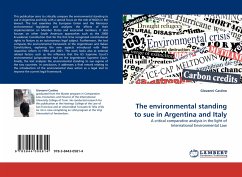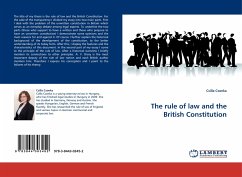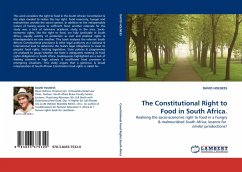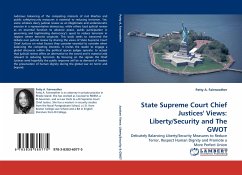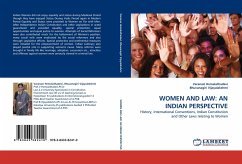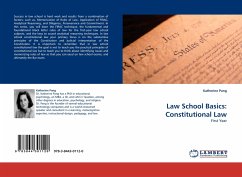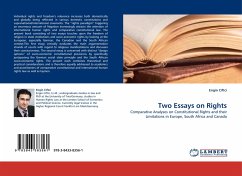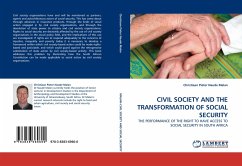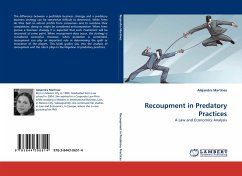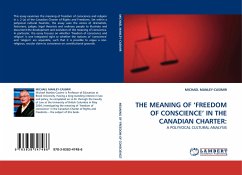
THE MEANING OF 'FREEDOM OF CONSCIENCE' IN THE CANADIAN CHARTER:
A POLYVOCAL CULTURAL ANALYSIS
Versandkostenfrei!
Versandfertig in 6-10 Tagen
40,99 €
inkl. MwSt.

PAYBACK Punkte
20 °P sammeln!
This essay examines the meaning of freedom of conscience and religion in s. 2 (a) of the Canadian Charter of Rights and Freedoms. Set within a polyvocal cultural heuristic, the essay uses the voices of dramatists, historians, judges, legal theorists and ordinary people to illustrate and document the development and evolution of the meaning of conscience. In particular, the essay focuses on whether 'freedom of conscience and religion' is one integrated right or whether the notions of 'conscience' and 'religion' are separable, such that it is possible to argue a non-religious, secular claim to c...
This essay examines the meaning of freedom of conscience and religion in s. 2 (a) of the Canadian Charter of Rights and Freedoms. Set within a polyvocal cultural heuristic, the essay uses the voices of dramatists, historians, judges, legal theorists and ordinary people to illustrate and document the development and evolution of the meaning of conscience. In particular, the essay focuses on whether 'freedom of conscience and religion' is one integrated right or whether the notions of 'conscience' and 'religion' are separable, such that it is possible to argue a non-religious, secular claim to conscience on constitutional grounds.



